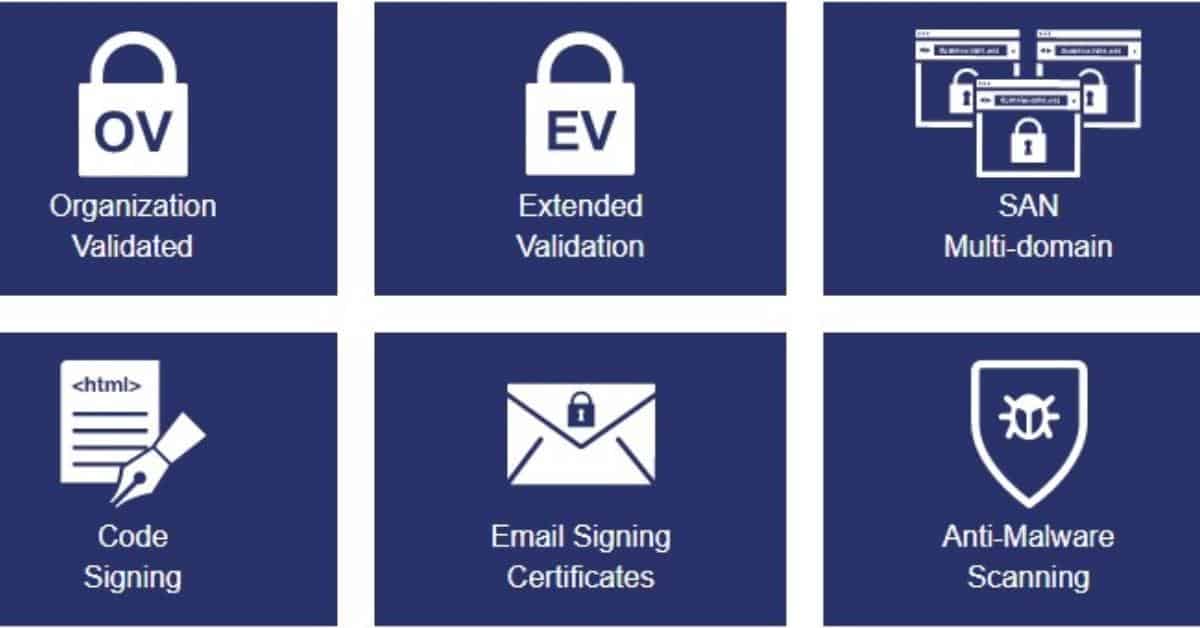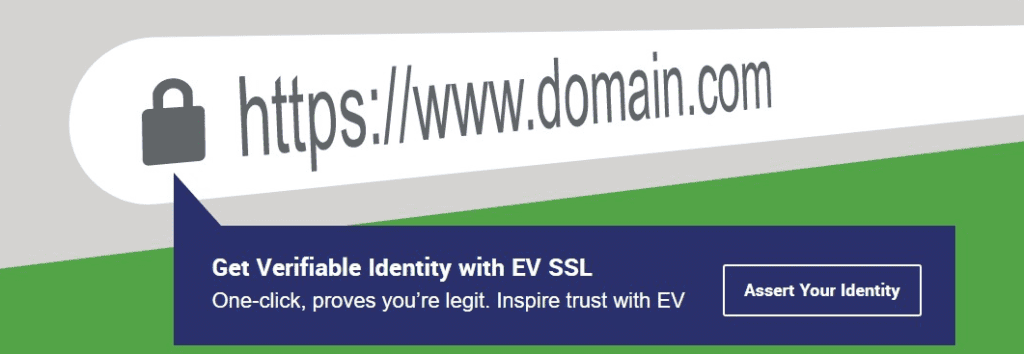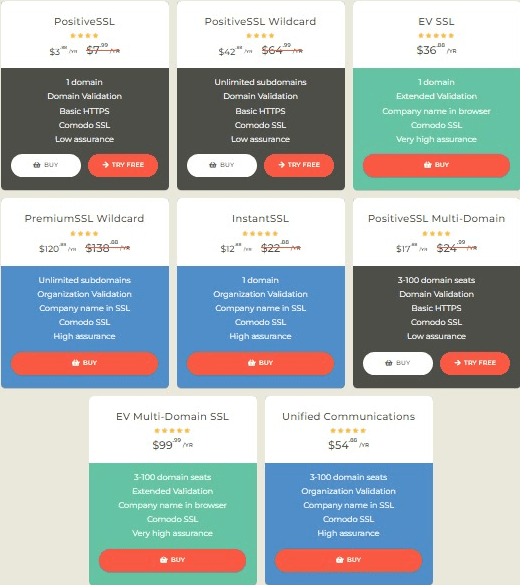Physical Address
304 North Cardinal St.
Dorchester Center, MA 02124

To protect your data, you need to have an SSL certificate. This guide will teach you what an SSL certificate is, how to get one, the different types of SSL certificates, the pros and cons of each kind, and the best SSL certificate providers.

A Secure Sockets Layer (SSL) certificate is a verified connection between your computer and a website or app. The certificate signer guarantees that the data you transfer is secure by using encryption. An SSL connection is not only secure but is also faster than an unencrypted connection. These are the main advantages of using an SSL certificate:
No middleman – An SSL certificate authenticates the communication between you and the website. You do not have to deal with any third-party website or app administrators. They can directly access your data with the help of an SSL certificate. This is the most secure method of Internet communication. You can be sure that no one else can access your data even if somebody gets access to your computer.
Faster than an unencrypted connection – SSL encrypts the data so that only the intended recipient can see it. To protect your data, you can connect to a website via Port443 (SSL) instead of connecting to the server directly. This is the major downside of using an SSL certificate: You will have to trust the certificate signer – There are numerous SSL certificate signers. To protect your data, you will have to store the private key in a safe place. However, if an attacker gets access to that private key, all your data will be in jeopardy. You can call this “unauthorized” access.
SSL certificates work to protect your confidential data from being accessed by unauthorized individuals or third-party websites. They are used to ensure the security of e-mails, including those sent through the Internet, and to protect the privacy of online customers. SSL certificates are issued by a Certification Authority.
The Authority issues the certificate and signs the document that accompanies the certificate. SSL certificates are essential for online security, as they help identify and authenticate the sender of an email, and protect the contents of that email from unauthorized access. SSL certificates also provide a way for customers to connect securely with one another. When two or more people connect to an online service through SSL certificates, they can share information, resources, or files securely.
SSL certificates are becoming more and more popular among businesses and individuals who need to keep their information safe. They are proven to be more secure than the old-fashioned habits of e-mail and the Internet. An SSL certificate is a verification mechanism that only lets people who have permission to access your data access it.
Even if somebody gets access to your computer, they will not be able to view or modify your data. With an SSL certificate, you will be able to protect your data more effectively. To access your data, you will have to give the address of the website where it is stored. This way, your data is stored in a secured location and is harder to steal.
Various types of SSL certificates can be purchased depending on the sensitivity of the information being stored. Here’s a quick run-down of what you should know about each type of SSL certificate.
A server-to-server SSL certificate is intended for situations where the server holding the certificate is located within the same network segment as the storage location of the sensitive data. The certificate will contain a list of IP addresses of the computers that hold the certificates. The host that issued the certificate will have the list of IP addresses printed on the certificate.
The computer holding the server certificate will have an SSL server application that issues the SSL connections. The storage location of the sensitive data will have an SSL client application that makes the request to the server and receives the response. All the communication between the server and the storage location will be encrypted with the technology specified in the certificate.
An Extended Validation SSL certificate is usually valid for three years and is issued to a commercial entity that has passed an evaluation process by an organization that verifies the security of the data stored on the certificate. Although it is not required, an organization that issues an Extended Validation SSL certificate will usually also complete a certification process to prove that the certification authority (CA) is trustworthy.
The certification process verifies that the organization maintains proper accounting and management practices, and is free of any unethical or illegality related to the financial aspect of the company. The certification will also determine the suitability of the organization as a holder of an SSL certificate.
A Domain Validated certificate is not only suitable for a private key storage location, but it’s also a good option for hosting a website. The domain name has to be registered with a domain name registrar such as GoDaddy.com or Namecheap.com. The site hosting the website signs the certificate with its domain name. The certificate will identify the signer and the site. Any future changes to the domain name will require the signer to update the certificate.
A Webroot SSL certificate is similar to a standard SSL certificate, but it is managed through a third-party certification authority. The owner of the domain name signs the certificate as well as its access control list (ACL). The user associated with the domain name signs the certificate with their digital identity.
An organisation-validated certificate is perfect if your organization is small and the risk of a breach is low. Although the technology is there, it’s not very advanced. We have to rely on the certificate’s expiration date to figure out when the certificate should be renewed. As soon as the expiration date comes up, we have to start thinking about renewing the certificate.
It’s not a good idea to store sensitive data on an expired certificate. At the end of the day, an organization that issues an organization-validated SSL certificate is saying that the information stored on the certificate is trustworthy. If the certificate is lost or stolen, it’s not just the data that is at risk, but also the reputation of the organization.
These are short-term solutions that connect two or more organizations over a wire. The technology used in a UCC certificate is more advanced than that found in an SSL certificate. When communicating over the Internet, voice and data communications are closely interconnected. When a UCC connection is made, the data is sent through the voice portion of the connection first. The voice data is then decrypted and sent to the other party. UCC certificates are usually bought in bulk and issued to several organizations.
These are a combination of the two above. A Multi-Domain SSL certificate is a bit like an Extended Validation SSL certificate with some important differences. A Multi-Domain SSL certificate will contain information about the subdomains and suffixes that are added to the top of the certificate. The subdomain should be unique among all other subdomains within an organization.
The same goes for the suffix, which should also be unique among other suffixes. An organization that issues a multi-domain SSL certificate is saying that the certificates are intended for multiple sites, not just one. If someone were to steal one of these certificates, they could easily load all the sensitive data on a server in one go. This is why it’s a good idea to use a Multi-Domain SSL certificate.
There are pros and cons of SSL Certificates mentioned below
The following table lists the best SSL certificate providers. We hope that reading this article gives you a better understanding of the different types of SSL certificates and the best ones for your specific needs.
SSLs.com offers a comprehensive and affordable solution for anyone looking to secure their website from the ground up. They provide an easy-to-use platform that makes securing your website simple and affordable, so you can focus on what matters—building great content.

You won’t find the usual hype, jargon or complexity.

The SSL Store team is focused on keeping your web connections secure and brand reputation clean. They provide top-quality, affordable SSL products that protect your online presence and keep your business name squeaky clean.

Namecheap SSL certificates offer premium security at an affordable price, with a company dedicated to consumer rights and building a safer Internet. No matter your website type, you’re sure to find the best fit and SSL certificate price for your digital project or business.


With the advent of the Internet, cyber-attacks have become a widespread problem. A hacker can target your organization to steal sensitive data or cripple your business’s operations. As a result, businesses have become more cautious in their online activities. To protect their data, businesses need to adopt secure protocols. However, it is not easy to determine which SSL certificate provider is secure enough. In this article, we review the best SSL certificate providers. We discuss the different types of SSL certificates, the pros and cons of each kind, and the best SSL certificate providers.
SSL certificates are a type of security certificate that helps protect your computer from data breaches. SSL certificates are issued by the SSL Certificate Authority.
SSL certificates are used to secure a web page or an email. When you click on a link in an email, for example, the URL will be encrypted with SSL and sent over the internet as an email.
This way, the recipient can only access the page if they have an SSL certificate from a trusted certificate authority.
SSL certificates help protect your privacy and security when accessing the internet.
There is no one-size-fits-all answer to this question, as the SSL certificate will vary depending on the business and its needs. However, a good general rule of thumb is that an SSL certificate should cost around $50 per year.
Some good places to buy SSL certificates are from a reputable certificate issuer like SSLs.com & TheSSLstore.com
SSL certificates are stored on the web server where the website is hosted, and not on any individual users’ computers.
SSL certificates are required for many websites because they protect the privacy of your data.SSL certificates are also used to encrypt data as it travels between your computer and the website. This helps to protect your data from being accessed by anyone who is not authorised to see it.
SSL certificates take around 3-5 business days to be delivered.
An SSL certificate is required for website security. This helps protect your data from being accessed by unauthorized individuals.
Every business has its own specific needs when it comes to SSL certificates. However, some general tips that can help you make the best decision for your business include:
– Make sure your SSL certificate is from a reputable and authorized SSL provider.
– Use a third-party security auditing and inspection service to ensure your SSL certificate is up to date and meets all your required security requirements.
– Don’t use lower-quality SSL certificates or insecure TLS connections.
– Always test your SSL certificate with a valid SSL Testing Service to ensure Exactly What It protects against.
SSL Certificates can cost anywhere from $50 to $1,000. The most common price is $50, but it can go up or down.
If your SSL certificate has expired, it means that your website is not secure and could be hacked. You should immediately update your security code and contact your SSL provider to ask them to renew your certificate.
SSL certificates are valid for a minimum of 3 years. It depends on the certificate that you purchased.
There is no definitive answer to this question as different ecommerce websites require different certificates and security measures. Some of the best SSL certificates can be found here.
You may not be able to do any online shopping without an SSL certificate. SSL certificates are used to secure the personal data of online shoppers. Without an SSL certificate, your data could be accessed by third-party attackers.
Yes. When you use an SSL certificate for your server, you can make sure that only the computers that need to access your data connect directly to the server. If somebody wants to access your data from a different computer, they will have to use an external drive or a USB or FireWire connection. Also, the external drive will have to be stored somewhere safe so that it is not connected to any other device.
SSL certificates can be bought online, or through a third party. To buy an online SSL certificate, visit SSLs.com and TheSSLstore.com and click on “buy now.” You can also buy a certificate through a third party. You can find a list of certified third-party Certificate Authorities on their website.
Once you have a third-party SSL certificate and an SSL server application, it’s time to get down to business. The first thing you’ll need to do is enable SSL on your hosting account. Once you’ve enabled SSL on your hosting account, you can head to each server in your business and enable it as well. When you’re all done, make sure to remove the old SSL certificate and store it safely in a safe place. We recommend taking the original printout and safely storing it in a fire-proof safe.
If you’re installing an existing SSL certificate on your device, the installation process is very similar to the process for online installations. First, ensure that the device is connected to the same network segment as the server that is holding the certificate. Then, issue the command set net waive to remove the network security check from the firmware. Next, issue the command set ssl req -new –new key rsa:4096 -days 86400 to generate a new certificate request. Finally, issue the command set ssl req -new -new key rsa:4096 -days 86400 -sha256 -all to create a request for the certificate.
Cloud-based SSL certificates are a great option if your company is located in a remote location or if you need a short lead time before sending your data over the cloud. These types of SSL certificates can be bought exclusively through the provider of your choice. Once you’ve chosen your provider, you can create a service account through your organization’s provider and use it to buy a cloud-based SSL certificate.
Email-based SSL certificates are a good option for situations where a smaller organization needs to buy an email-based SSL certificate. These types of SSL certificates can be bought exclusively through the provider of your choice. Once you’ve chosen your provider, you can create a service account through your organization’s provider and use it to buy an email-based SSL certificate.